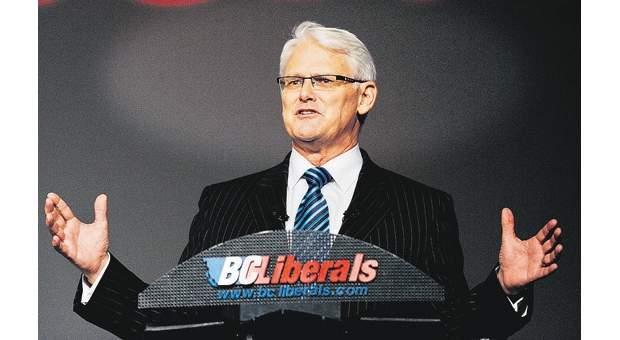I first met Rafe Mair while he was minister of environment in the Socred government in the 1980s. I had done a critical analysis of BC Hydro’s proposed Cheekye Dunsmuir power line and my work was cited frequently by the Opposition in the Legislature. Poor Rafe was forced to defend a project I am pretty sure he didn’t himself support.
Around that time I was at a meeting he was attending and I went up and introduced myself. I said, “My name is Marvin Shaffer. You may have heard my name in relation to the Cheekye Dunsmuir project.” Without missing a beat he grinned and replied, “With annoying regularity.”
Rafe wasn’t happy with my report, the Opposition, or the project. But he had a great sense of humour and I much appreciated how he treated me.
Taking the public to the ‘clean energy’ cleaners
We connected again many years later after I had written a series of reports for MoveUp BC titled “Lost in Transmission,” which was on the Gordon Campbell-led BC Liberal government’s Clean Energy Plan and push for independent power projects. These IPPs were to be privately owned and sell the electricity they produced to the public crown corporation BC Hydro.
Rafe’s passion and concern were all about the environmental consequences of the run-of-river IPPs being built in the south coastal region and elsewhere in the province. But he took great interest in the economic issues raised by the Clean Energy Plan.
The plan forced BC Hydro to buy low-value, high-cost energy supply that it didn’t need for system reliability or any other good economic reason. He was infuriated that the plan not only had serious environmental consequences but was also incompetent in terms of what would best serve BC Hydro and its customers. The scheme was arguably corrupt in the unjustified transfer of wealth to private power producers it gave rise to.
I never considered myself an ally of Rafe in his various environmental campaigns, including his passionate fight against run-of-river IPPs. However, I did spend time with him and his colleague Damien Gillis explaining the details of my economic analysis of the Clean Energy Plan, and I think he appreciated the (albeit too dispassionate) critique I provided.
‘No tolerance’
For Rafe though, it was not good enough to point out economic shortcomings and assume reasonable people would make the changes that were needed. He was desperate to stop the damage the plan was having, and that required a no-holds-barred campaign.
Rafe’s advocacy certainly brought widespread attention to the problems with the Clean Energy Plan and more specifically the run-of-river projects it promoted. I suspect though that it was only when the costs that the plan was causing became a manifestly key driver of rate increases that the BC Liberal government under Christy Clark pulled back. It modified the self-sufficiency policy that was forcing BC Hydro to buy more power than it needed and encouraged the development of Site C (a whole other issue) to get away from the development of intermittent, low-value resources.
The IPPs BC Hydro was forced to buy are for the most part surplus to B.C. requirements and are being sold at great loss on the export market. The average cost of the IPPs BC Hydro was forced to buy in the last “Clean Call” for energy was over $125/MWh. That energy is currently being sold for some $25 to $30/MWh. The loss on the IPP purchases forced by the Clean Energy Plan is currently hundreds of millions of dollars per year.
Worse, the IPP take or pay contracts are limiting the ability of BC Hydro’s trading subsidiary Powerex to strategically buy and store for later sale the low-cost spot market power frequently available now with the widespread development of wind and solar in other jurisdictions — sources that can produce power when it is not needed in those jurisdictions and can’t be stored.
Rafe had no tolerance for waste like that.
Exposing government projects that are bad for taxpayers as well as the environment requires fearless investigative reporting. Support it by contributing to the Rafe Mair Memorial Fund for Investigative and Environmental Reporting. Click here to learn more . ![]()
Read more: Energy, BC Politics, Environment















Tyee Commenting Guidelines
Comments that violate guidelines risk being deleted, and violations may result in a temporary or permanent user ban. Maintain the spirit of good conversation to stay in the discussion.
*Please note The Tyee is not a forum for spreading misinformation about COVID-19, denying its existence or minimizing its risk to public health.
Do:
Do not: